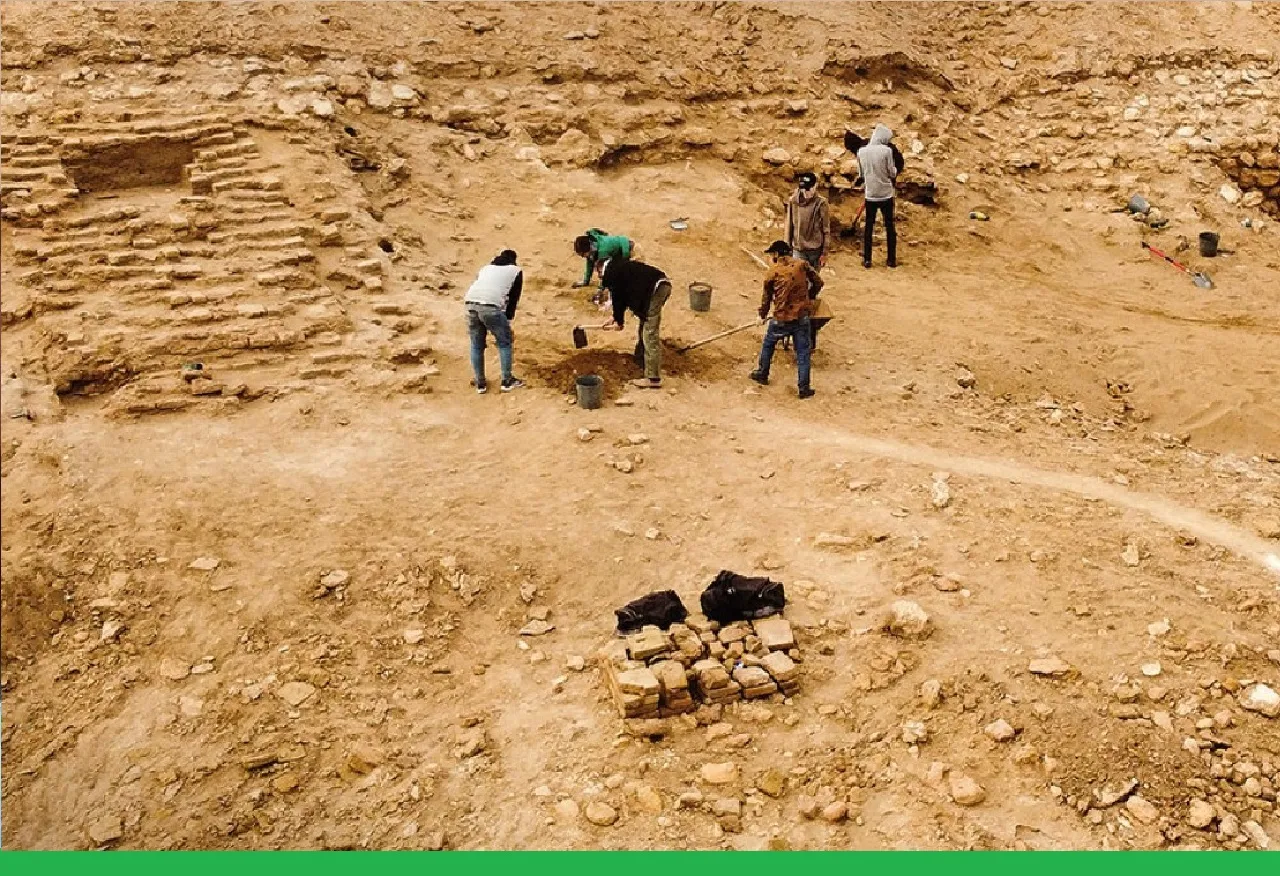Near Basra in southern Iraq, archaeologists have uncovered the ancient city of Eridu, widely regarded as the earliest city in the world and a foundational center of Sumerian civilization. Buried beneath desert mounds and undisturbed for over two millennia, Eridu offers unprecedented insights into one of humanity’s oldest urban societies.
Excavations at the site, known as Tell Abu Shahrain, began in earnest in 1946 under Iraqi archaeologist Fuad Safar and British archaeologist Seton Lloyd. They uncovered a remarkable sequence of 18 superimposed temple layers, including the largest temple dedicated to Enki, the Sumerian god of water and wisdom. These findings highlight Eridu’s religious and cultural significance, as it was a pilgrimage destination for centuries.
Founded around 5400 BCE during the Ubaid period on a virgin sand dune near the Euphrates River, Eridu grew into a complex urban center with advanced architecture, including palaces, drainage systems, and monumental temples. Archaeologists have also documented a vast network of over 4,000 irrigation canals extending for miles around the city, demonstrating sophisticated water management critical to sustaining early agriculture and urban life.
Despite its early prominence, Eridu eventually declined, likely due to environmental changes such as increasing soil salinity and shifting river courses that forced its abandonment by around 600 BCE. However, the site remained a cultic center for centuries afterward.
Recent international efforts, including Italian, French, and Iraqi teams, have resumed excavations using modern technology like satellite imagery and photogrammetry to map the city and its extensive irrigation system with greater precision.
The discovery and ongoing research at Eridu not only illuminate the origins of urban civilization in Mesopotamia but also provide valuable clues about early religious practices, social organization, and technological innovation in human history. Eridu stands as a testament to the ingenuity of ancient peoples and remains a key to understanding the dawn of civilization.

